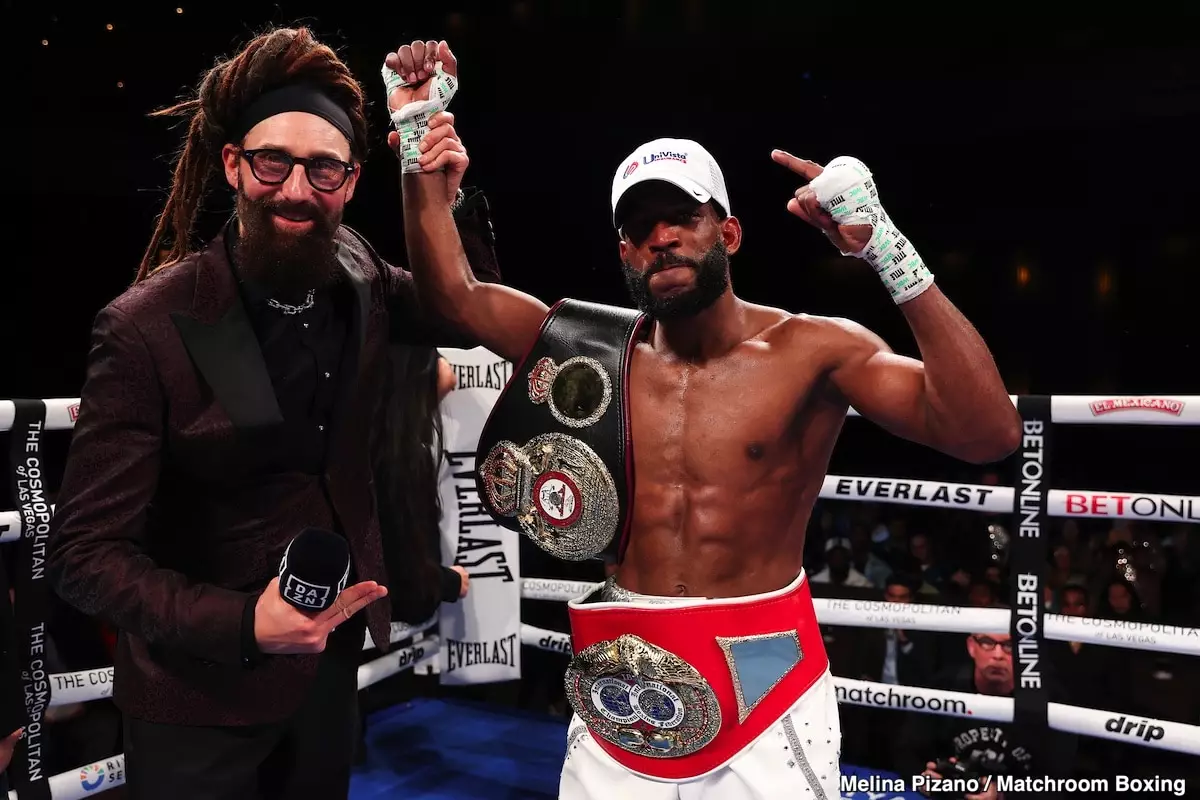The world of professional boxing often reflects a tumultuous mix of ambition, ego, and the relentless pursuit of glory. In this context, Keyshawn Davis’s reluctance to fight Cuban boxer Andy Cruz, despite their long history from the amateur circuit, has sparked a broad discussion about fear versus strategic career management. While Davis boasts an undefeated record and potential, it is his avoidance of Cruz that raises eyebrows and questions regarding his readiness for the highest echelons of the sport.
Keyshawn Davis, a rising star in the boxing world with an impressive 12-0 record and 8 knockouts to his name, holds a dubious distinction in his history with Andy Cruz; Davis has suffered defeats against Cruz on four occasions during their amateur days. This series of losses casts a long shadow on their potential bout in the professional arena and places Davis in a precarious position. Opting not to engage in a fifth matchup suggests more than just strategy; it speaks to a deeper sense of apprehension. For Davis, every loss carries the risk of not only tarnishing his reputation but also derailing his lucrative career, especially under the auspices of a major promotional entity like Top Rank.
Davis’s argument for avoiding a fight with Cruz centers around the belief that Cruz is simply not worth his time and efforts anymore, both from a competitive and commercial standpoint. He claims that he is targeting bigger names like Gervonta ‘Tank’ Davis, thereby denying merit to a matchup with Cruz. Yet the underlying question remains: is it merely a tactical choice, or a protective instinct stemming from previous defeats?
Davis articulates his criticisms of Cruz’s professional prowess based on a limited viewing of Cruz’s fights, only referencing his opponent’s pro debut. The heavyweight nature of such a claim seems somewhat flimsy, suggesting an inclination to downplay Cruz’s abilities as a way to justify avoiding the fight. While Davis insists that Cruz is “not as slick” as he was expected to be and that he gets caught by jabs, it becomes evident that such judgments may stem from an unwillingness to face an adversary who has already bested him multiple times.
Moreover, Davis’s comparisons often allude to Cruz’s ongoing career in which he has secured five victories, all while Davis’s achievements are lauded significantly by Top Rank. The promotional support granted to Davis may lead one to surmise that the boxing community is placing him a tier above his Cuban counterpart—even if Cruz is, on the surface, demonstrating a more compelling performance trajectory. This dimension reveals a disparity that may not solely rest on sporting merit, but rather on business interests and media narratives.
In a landscape where boxing is as much about fan engagement as it is about athletic prowess, Keyshawn Davis finds himself at a crossroads. He is poised to challenge WBO lightweight champion Denys Berinchyk soon, and thus, the question of timing emerges. Many critics are likely to interpret Davis’s avoidance of Andy Cruz as a tactical retreat layered in business rationale. He openly admits that a fight with Cruz feels like a “backwards move”—reflecting a broader concern in boxing where the emphasis on star power overshadows pure athletic competition.
Davis’s declaration that it doesn’t “make sense” to engage Cruz because he does not have a significant fan base adds an operational lens to the sport. His ambition appears to prioritize revenue-generating fights against established stars, potentially limiting opportunities for budding rivalries or showcasing skills against equally matched opponents. The sentiment may resonate among rising fighters who seek to protect their brand, but it inevitably undermines the spirit of competition that boxing fundamentally thrives upon.
The saga of Keyshawn Davis and Andy Cruz exemplifies the conflict between business strategy and sportsmanship within professional boxing. As fans, enthusiasts, and analysts await Davis’s next steps, the insistence on avoiding Cruz raises significant questions about the essence of being a fighter. While strategic career management has its place, an authentic desire to compete and rise through challenging encounters ought to be at the forefront of a boxer’s pursuit.
For Davis to realize his ambitions fully, whether in terms of championship glory or commercial success, he must reckon with the importance of facing adversaries who have given him pause in the past. Only through engaging with difficult opponents can he truly test the limits of his potential and prove he is deserving of being positioned among boxing’s elite.

